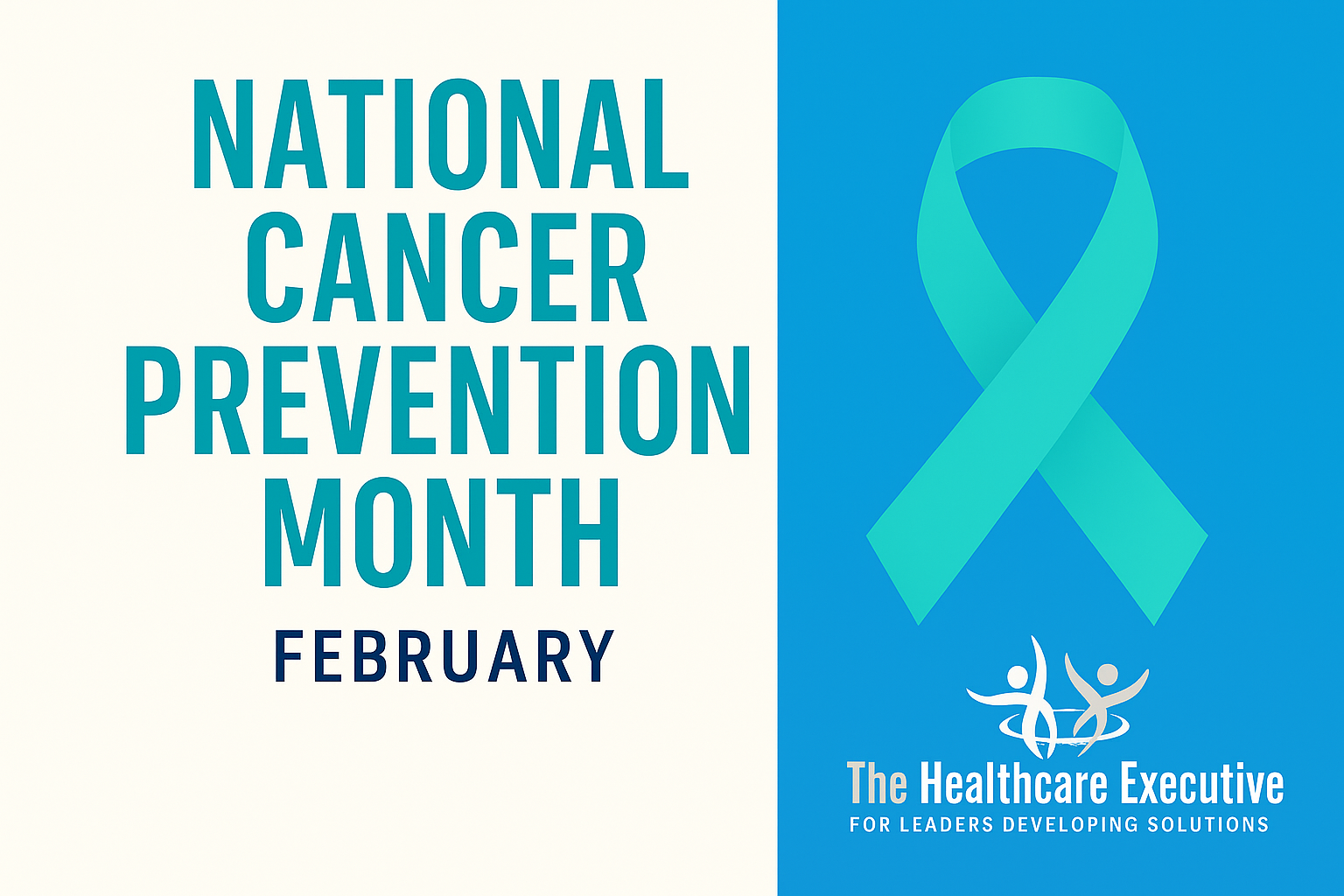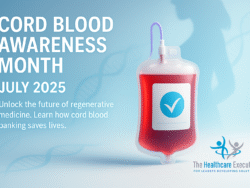National Cancer Prevention Month 2025: What Healthcare Leaders Need to Prioritize

- Posted by Greg Wahlstrom, MBA, HCM
- Posted in Health Observance Calendar
Elevating Public Awareness, Screening Programs, and Institutional Commitment
Published: February 4, 2025
Every February, National Cancer Prevention Month serves as a vital reminder that cancer is not only treatable but, in many cases, preventable. As healthcare leaders grapple with increasing treatment costs and shifting regulatory expectations, prevention strategies must be integrated into system-wide protocols. At Memorial Sloan Kettering, precision-based screenings are now prioritized across community clinics to capture early-stage cancers, especially in underserved populations. Similarly, Bassett Healthcare Network in New York has made strides with mobile units delivering outreach and screenings in rural regions. These proactive models reinforce that executive strategy must include public health partnerships, localized education, and universal screening. Consequently, leading with prevention not only improves outcomes but ensures alignment with value-based care imperatives.
Leadership must extend beyond awareness campaigns to drive structural change. The National Comprehensive Cancer Network (NCCN) emphasizes the role of institutional commitment in prevention through evidence-based guidelines. This aligns with internal quality initiatives such as those highlighted in Green Hospitals: Leading the Way in Climate-Conscious Healthcare, where sustainable practices intersect with population health. Notably, Mount Sinai’s Prevention Initiative launched in Manhattan is setting a precedent for urban prevention ecosystems. These programs rely on interdisciplinary leadership, data-driven risk stratification, and coordinated follow-ups—benchmarks that healthcare CEOs must now include in their system goals. Ultimately, the future of oncology strategy is no longer reactive; it’s predictive and preventive.
Innovation in prevention must be equitable to have impact. For many communities, access remains a barrier, requiring leaders to develop cross-sector collaborations with non-traditional partners. As the CDC’s Cancer Prevention Division outlines, upstream interventions such as HPV vaccination, tobacco cessation programs, and food policy reform have measurable long-term effects. Our article on trust in healthcare leadership explores how transparency and inclusive policy development play a role in prevention success. Hospitals must also revisit their care model frameworks to better serve linguistically diverse, low-literacy, and historically marginalized communities. Accordingly, embracing digital tools for education, remote risk screening, and prevention adherence can be a force multiplier in combating health inequities.
Prevention must also be prioritized within internal system culture. Health systems that incentivize early detection—through workforce education, aligned KPIs, and budget allocation—report higher patient adherence and improved outcomes. Executive boards must assess not just financial return on prevention investments, but also reputational and ethical returns. In this way, healthcare leaders move from compliance to commitment, embedding cancer prevention into their long-term strategic planning. Hospitals that recognize the connection between patient education, equity, and enterprise risk management will shape the next decade of success. Thus, for 2025, cancer prevention is not a marketing campaign—it’s a leadership imperative.
If you’re a hospital leader or healthcare executive looking to elevate your cancer prevention strategy, now is the time to act. Strengthen interdisciplinary teams, expand screening access, and evaluate how your leadership is measured not just by revenue—but by community resilience.
Discover More on Health Strategy and Prevention
For insights on building resilient healthcare systems and promoting equity, read our post on trauma-informed leadership strategies for 2025.
Internal Links:
- Green Hospitals: Leading the Way in Climate-Conscious Healthcare
- Rebuilding Trust in U.S. Healthcare: A Leadership Blueprint



